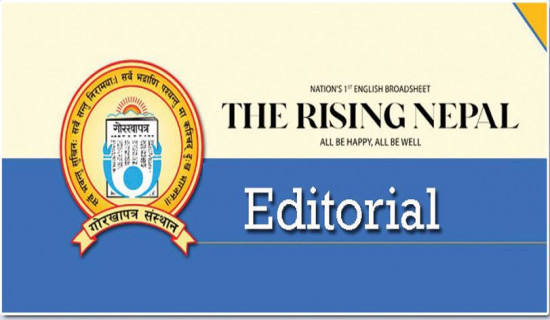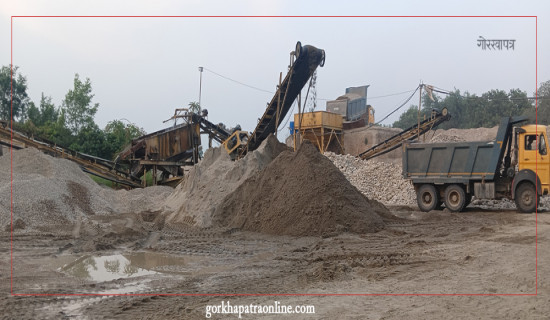- Wednesday, 14 May 2025
Women Entrepreneurship
Entrepreneurship is the ability and willingness to develop, organise and run a business enterprise by taking financial risks under various uncertainties in the hope of profit. Entrepreneurship is one of the major factors of the production. It is a driving force for economic progress, innovation, and social development. Enterprises form a strong foundation for economic resilience and growth. Women in Nepal have long been active participants in the economy. Although women have low participation in entrepreneurship landscape of Nepal, their involvement in businesses is on increase in recent years. However, women still face various barriers and challenges that are unique to their gender to fully realise their potential as business leaders, owners and entrepreneurs.
More women entrepreneurs face challenges in business skills, finance, technology, and limited access to resources compared to their male counterparts. In addition to this, absence of institutional and policy support hampers access to finance, business development, and reinforces the situation of gender bias. While many countries including in Africa and Asia-Pacific region have included gender consideration in their trade policies, Nepal is providing the same trade incentives to both males and females. As female proportion exceeds more than half of the total population of the country, development of women entrepreneurship is important for the economic development of the country. Moreover, increased women’s participation in business is crucial for sustainable growth and economic resilience of the country.
Focusing on the importance of women entrepreneurship for the economic development of the country, Prime Minister Pushpa Kamal Dahal ‘Prachanda’ has asked the Ministry of Women, Children and Senior Citizens to prioritise women entrepreneurship development. As per the news report published in this daily on Wednesday, the Prime Minister has directed concerned officials to work for women entrepreneurship development. He said that women rights could be achieved only if women were financially self-sufficient and instructed the ministry to implement a policy of prioritising industries and businesses run by women.
The Prime Minister called it paramount to acknowledge the role played by Nepali women in bringing about political changes in the country and highlighted the need to take account of their political, economic and social conditions. He further directed the ministry to conduct necessary research and formulate an action plan to realise the rights guaranteed by the constitution. For this, he asked it to prepare a list of policy, structural and programmatic actions to be included in the next fiscal year’s policy and programmes and budget. He presented a 14-point directive to the ministry to strengthen its capacity to work for the welfare of women, children and senior citizens from all economic, ethnic and social backgrounds.
Though the government has made some policy incentives to women-led enterprises to increase women’s involvement in business, they have not been sufficient to increase their participation in desired level. For lack of institutional support many women-led businesses still operate informally and face constraints in access to loans from banks and financial institutions due to collateral requirements while inadequate technology and marketing knowledge hinder the growth. There are more than 20 institutions and mechanisms for the protection and promotion of women’s rights, but none seem to be working for the growth and expansion of women-led enterprises. Therefore, in order to promote women entrepreneurship, the government and the private sector need to work for institutional development and policy supports for the women-led enterprises.
The policy related to trade, investment and credits should have the provision of special treatments for the women and women-led enterprises. In order to promote women entrepreneurship as per the spirit of the direction given by the Prime Minister, the concerned ministries and departments and divisions should work rigorously to formulate women entrepreneur-friendly policy in coordination with associations of the private sector. Moreover, for the promotion of women-led enterprises, the government should introduce the policy of subsidising their products which would enhance their competence in the current globalised market.

















